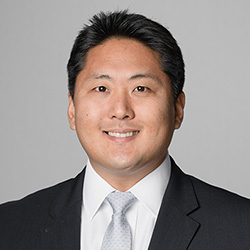Our interview with Claudine took place on the sixth anniversary of the creation of her role at Salesforce Ventures. Still, the milestone was an opportunity to look further forward into the future, not back. Like all Pathfinders, Claudine knows success comes not from keeping up with the pace of change but from leading it. Throughout her career, Claudine Emeott has focused on economic development, social enterprise, and impact investing. Her passion for impact brought her to Salesforce Ventures, where she leads the Salesforce Ventures Impact Fund, investing in mission-driven technology companies in education, workforce development, sustainability, financial inclusion, and digital health.
Can you tell us about the career path that's led to your current role at Salesforce Ventures?
Looking back, I can see a through-line from where I started to where I am now that's been guided by impact as a North Star. As an undergraduate at Harvard I majored in East Asian Studies, with a focus on social sciences and economic development – it was travel to that part of the world that made me realize I wanted to pursue a career in social impact.
It was during my role at Kiva, one of the very first companies in the world to leverage a crowdfunding platform, where I experienced the convergence of investing, impact, and tech. The team at Kiva was very nimble and passionate about being close to impact on the ground, which was an exciting place to be.
After about five years at Kiva, I was ready to leverage my experience at a larger organization. When I joined Salesforce to launch its impact investing initiative, I was excited about the opportunity to work for a larger, but still mission-driven platform. I joined in 2017 to build the impact investing strategy and portfolio, grow the team, and expand the fund.
How did you navigate the early days of building the Salesforce Ventures Impact Fund?
I relentlessly worked my social impact network and expanded beyond it to include other VCs who had dabbled in investments with a strong impact lens, even if it wasn't a core part of their fund remit. I also realized that we needed to quickly put some high-profile investments on the board. In our first year, we invested in companies that caught positive national attention because of the problems they were solving and the businesses they were building.
All of that helped put our name on the map.
How has the wider field of impact investing grown since then?
The most significant change is the range of investors at the table now. We're seeing many early-stage VC firms establishing impact fund strategies, and if you look at the largest climate funds launched in recent years, many have come from growth equity platforms like General Atlantic, TPG, and others.
Also, traditional VCs are increasingly investing in impact through their normal course of investing. These are investors with LPs who want to make a rate of return. The traditional VCs are doubling down on companies that can deliver those returns and deliver demonstrable environmental and social impact. These are often companies that have very strong output in terms of impact (for example, emission abatement or access to education), which can grow in-line with the revenue. More and more investors are seeing that impact and financial return can go hand in hand.
How has the Fund evolved? What makes it still stand out in a more crowded VC world?
The portfolio we've built over the last six years stands out across all categories. We have very well-known investments within each of our sectors. Some of that comes from our first-mover advantage, but we're also continually evolving how we support our entrepreneurs.
We're more than a check. We aim to be a helpful partner. We work very closely with our portfolio companies and very hard on their behalf. We can connect a portfolio company to internal experts on product, pricing, sales enablement, DEI, and ESG. The Salesforce ecosystem is an incredible resource, and we aim to provide that support throughout a company’s journey.
If we're excited about a company, we do our best to work with them ahead of a potential investment because it's essential to show our value early on. That's what keeps us relevant and competitive.
“We're more than a check. We aim to be a helpful partner. We work very closely with our portfolio companies and very hard on their behalf. We can connect a portfolio company to internal experts on product, pricing, sales enablement, DEI, and ESG. The Salesforce ecosystem is an incredible resource, and we aim to provide that support throughout a company’s journey.”
What are some investments you’re especially proud of?
Regarding exemplary impact, we have so many great companies across many different sectors. Unite Us is a technology company that builds coordinated care networks to connect healthcare and social service providers. In terms of impact, they have achieved such impressive scale, working with many people in vulnerable health situations who have seen a real, measurable change in their lives because of how Unite Us has connected them to support services, all while bringing down the cost of care.
Another good case study is Candidly, an AI-driven student debt and savings optimization platform that addresses the full lifecycle of education expenses. Its impact is clear and highly quantitative. For every user, they're able to calculate how many dollars are saved in avoided interest and how many months are shaved off from loan repayments.
How is D&I woven into your investment process?
Our ambition was always to create a much more diverse fund than you might see. We want to ensure that over 60% of our CEOs and founders are women or underrepresented minorities. When we think about the problems we're looking to address with our investments, we need leaders who have lived a proximal experience to those challenges.
Our Impact Fund team is also currently all-female. I expect that's still a rare example of gender diversity in the VC industry. CEOs like to see themselves reflected in whom they're talking to on the investor side. A diverse team also enables natural conversations with companies about the importance of building equity and inclusion into their teams.
“When we think about the problems we're looking to address with our investments, we need leaders who have lived a proximal experience to those challenges.”
What tips would you give to companies considering devising an impact investment strategy today?
Firstly, if you already have an existing corporate venture arm, utilize it. Don't reinvent the wheel with a separate impact investing strategy. If companies house impact investing in a different corner from their venture arm, there’s a risk that impact will be seen as a concessionary effort.
You also need to bring in talent that understands impact and can align those investing principles with solid fundamentals in due diligence and deal execution.
Finally, be thoughtful about where your business sits in the world and the sector you operate in. Think about the secret sauce only you can leverage to help the companies you invest in. That's what will build your reputation as a value-add investor.
What will encourage more corporates to launch impact investing initiatives?
In some way, shape or form, we'll see a lot more impact investments in the climate space because so many corporates now realize how much their fates are tied to what they do about it, either from an operational or regulatory perspective.
I feel like there’s still so much work to do in this space. More impact investors are around the table, but the field is not crowded. We need all hands on deck for the problems we're trying to address, along with as much capital as we can possibly commit to the brightest innovators.
I hope everyone reading this will feel it's something they can get behind.
“More impact investors are around the table, but the field is not crowded. We need all hands on deck for the problems we're trying to address, along with as much capital as we can possibly commit to the brightest innovators.”

Moses Choi
Director, Sustainable Finance

Claudine Emeott
VP and Partner, Salesforce Ventures Impact Fund